

July 28, 2022
Visit our sister
GSA/UK organization:
Designed by V.M.S.
© 2004-2022
All Rights Reserved
Earth Crisis and the Global Environmental Movement Virtual Conference
August 9 - 13, 2022
KEYNOTE SPEAKERS
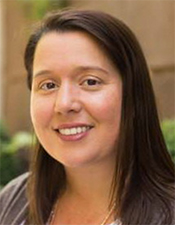 |
Ana Baptista is an assistant professor of Professional Practice in the Environmental Policy and Sustainability Management Program. She is also an associate director of the Tishman Environment and Design Center. She has nearly two decades of work within the EJ movement and her research and professional practice focuses on environmental justice policies and community based strategies for tackling environmental injustice. Dr. Baptista's research extends to a wide range of issues: zero waste and anti-incineration, climate justice, urban air pollution mitigation policies, and the impacts of the global goods movement. She is the co-creator and principle faculty on the Ripe for Creative Disruption Fellowship. Read more >> |
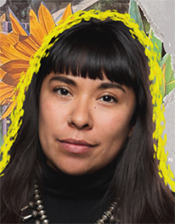 |
Jade Begay, Dine and Tesuque Pueblo, is an Indigenous rights and climate justice organizer, narrative strategist, and filmmaker. Jade has partnered with organizations and Tribal Nations from the Arctic to the Amazon to develop strategies, create stories, and build campaigns to mobilize engagement and impact around issues like climate change, Indigenous self-determination, and environmental justice. Jade is the Climate Justice Campaign Director at NDN Collective and serves on White House Environmental Justice Advisory Council. Read more >> |
 |
Patrick Bond is a political economist, political ecologist and scholar of social mobilization. From 2020-21 he was Professor at the Western Cape School of Government and from 2015-2019 was a Distinguished Professor of Political Economy at the University of the Witwatersrand School of Governance. From 2004 through mid-2016, he was Senior Professor at the University of KwaZulu-Natal School of Built Environment and Development Studies and was also Director of the Centre for Civil Society. Patrick also served as visiting professor at Gyeongsang National University, South Korea and as an associate of the Leverhulme Centre for the Study of Value at the University of Manchester. Read more >> |
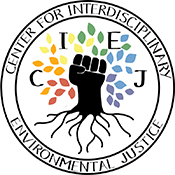 |
The Center for Interdisciplinary Environmental Justice is a collective of activists, academics, scientists, and artists working for decolonial environmental justice efforts trans-locally. Their members are in San Diego, CA, San Francisco, CA, El Paso, TX, and Guerrero, MX. They align ourselves with Indigenous struggles for land, water, and life. These take many forms in many places, but are connected through resistance to capitalist/colonial extractivism and restoration of land relations. In the San Diego-Tijuana border region, they stand with the Kumeyaay Nation to protect the last undisturbed stretch of the San Diego River from sand mining and to protect sacred burial grounds from border wall construction/destruction. Read more >> |
 |
Ying Chen is Assistant Professor of Economics at the New School and holds a PhD in economics from University of Massachusetts Amherst. Her work explores the contradictions within capitalism and how they exhibit themselves. Topics she has studied include economic development, labor, and climate change, with a special focus on the global south. She has published in journals including Environment and Development Economics, Economics and Labor Relations Review, Journal of Labor and Society, Review of Radical Political Economics, International Review of Applied Economics, and so on. She was also consulted for the working of the UNCTAD Trade and Development Report 2021. Read more >> |
 |
Jayce Chiblow is Anishinaabe from Garden River First Nation, Ontario. She has a Bachelor's of Science degree in Biology and a Masters of Environmental Studies. Jayce's masters research was conducted in her community where she brought together youth, community leaders, and knowledge keepers in a workshop-style gathering focused on climate action through an Indigenous food sovereignty lens. Jayce started with ICA in 2020 and has worked as the Community Engagement Lead and Toolkit Lead where she supported the creation, dissemination and implementation of ICA's Toolkit and Climate Leadership Program. Currently, she sits as the Education and Training Manager where she will continue to support ICA's development of education and training programs/materials. Read more >> |
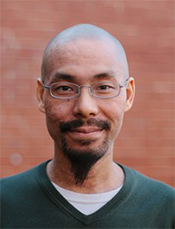 |
Tobita Chow co-founded and is Director of Justic is Global, a project organizing to resist the rise of nationalism. To do this, they are promoting a new vision for internationalism that aggressively tackles global inequality and climate change. Tobita has been organizing campaigns for corporate accountability and racial and economic justice in Chicago since 2009. He was a key leader in bringing Moral Mondays to Illinois, served as Chair of the Board of Directors of The People's Lobby, and has led trainings on the global economy and globalization on three continents. He holds a master's degree in philosophy from the University of Chicago and a master's degree in divinity from the Lutheran School of Theology at Chicago. Read more >> |
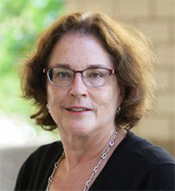 |
Eve Darian-Smith worked as a corporate lawyer in Australia before coming to the United States to pursue a PhD in sociocultural anthropology. Trained as a lawyer, historian and anthropologist, she is a critical interdisciplinary scholar interested in issues of postcolonialism, human rights, legal pluralism, and sociolegal theory. Her current work focuses on authoritarianism and crises of democracy with research supported by five grants from the National Science Foundation, as well as grants from the Wenner-Gren Foundation, American Philosophical Society, and the UC Center for New Racial Studies. Eve has published widely, including thirteen books, edited volumes and special issues. Her first book Bridging Divides: The Channel Tunnel and English Legal Identity in the New Europe (2009) was the co-winner of the Law & Society Association Herbert Jacob Book Prize. Read more >> |
 |
Moneka De Oro is an Indigenous Chamoru mother, climate/peace activist, educator and dedicated community organizer based in the Mariana Islands. She is a former Just Transition Fellow with Climate Justice Alliance, where she co-coordinated community based solutions with member organization Micronesia Climate Change Alliance. She is deeply involved in efforts uplifting the experiences of Pacific Islanders on the front lines of the climate crisis. She has wide academic, professional and volunteer experiences in social justice, historic preservation, environmental protection and cultural perpetuation. Read more >> |
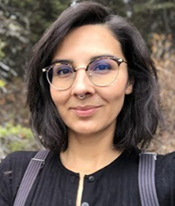 |
Eriel Tchekwie Deranger is a Denesuline mother from the Athabasca Chipewyan First Nation (ACFN) and the Executive Director and co-founder of Indigenous Climate Action (ICA), an Indigenous-led climate justice organization in so-called Canada. Deranger is a member of the International Indigenous Peoples Forum on Climate Change, and sits on various boards including Bioneers, It Takes Roots Leadership Council, Climate Justice Resiliency Fund Council of Advisors, and WWF Canada; and was a founding member of the Global Indigenous Youth Caucus. Deranger's work focuses on Indigenous rights and building intersectional dialogue between Indigenous rights, climate justice and other social justice movements. She is recognized for her role as the spokespersons for her community (ACFN) in the international Indigenous Tar Sands Campaign and developing the Tar Sands Healing Walk. This included developing one of the first Indigenous rights-based divest movements; lobbying government officials in Canada, the US, the UK and the EU; supporting and leading mass mobilizations against the fossil fuel industry & climate change; and bringing international recognition to issues in her territory with celebrities and politicians alike. Deranger has written for the Guardian, Yellowhead Institute, The National Observer, Red Pepper Magazine; has been featured in documentary films including Elemental (2012); and is regularly interviewed for national and international media outlets including Democracy Now!, Aboriginal Peoples Television Network (APTN), and CBC. Read more >> |
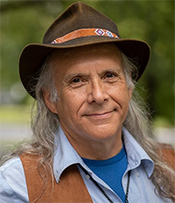 |
James Fenelon is Professor and Director of Center for Indigenous Peoples Studies, California State University, San Bernardino, and currently Lang Visiting Professor for Social Change at Swarthmore College. He published three books: Culturicide, Resistance and Survival of the Lakota (Sioux Nation) (1998, Routledge); Indigenous Peoples and Globalization(with Thomas Hall, Paradigm [Routledge] 2008); and Redskins?: Sports Mascots, Indian Nations, and White Racism (2017) along with numerous journal articles, chapters/essays, and professional reviews. He has just finished Indian, Black and Irish: Capitalism, Colonization and Racism in America (Routledge). Professor Fenelon works on Climate Change, Environmental, War, Peace & Conflict engaged scholarship, publishing on related social sciences topics (ethnic and urban studies, Indian education, migration, genocide...) in numerous journal articles and book chapters (40+). James is Dakota/Lakota, (Standing Rock); Gaelish Irish, French and Scandinavian descent, advocates for social justice, Indigenous critiques and respect for all life on earth. Read more >> |
 |
Carmen G. Gonzalez is a Morris I. Leibman Professor of Law at Loyola University Chicago School of Law. She is a world-renowned expert in international environmental law, environmental justice, human rights and the environment, and food security. Professor Gonzalez has taught at numerous prestigious academic institutions around the globe and has participated in environmental law capacity projects in Asia, Latin America, and the former Soviet Union. She was a Fulbright Scholar in Argentina, a visiting scholar at the University of Cambridge in the UK, a visiting professor at the Hopkins-Nanjing Center in China, and a US Supreme Court Fellow. She later served as the George Soros Visiting Chair at the Central European University School of Public Policy in Budapest, Hungary, and as the Norton Rose Fulbright Distinguished Visiting Professor at the University of Houston Law Center. Read more >> |
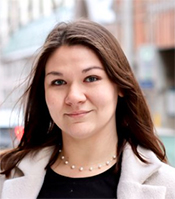 |
Breanne Lavallee-Heckert is a Michif woman with German settler ancestry from Red River and Treaty 1 Territory. Her Michif family is from the Metis community of St. Ambroise, Manitoba, located on the southern tip of Lake Manitoba. She holds a Bachelor of Arts in Human Rights from the University of Winnipeg, as well as a Bachelor of Civil Law and Juris Doctor from McGill University. Breanne is committed to decolonizing understandings of law and governance through the active embodiment of Metis sovereignty. She is a proud member of Red River Echoes, a collective of Metis people who are reclaiming culture, laws, and languages across our Homelands. Breanne enjoys writing, spending time with the land, and telling stories with friends and family. Read more >> |
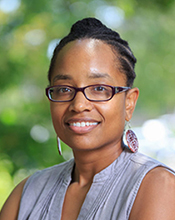 |
K. Melchor Quick Hall is a faculty member in the Human and Organizational Development doctoral programs in Fielding Graduate University's School of Leadership Studies. She is also a 2019-2020 visiting scholar at Brandeis University's Women's Studies Research Center, and has recently been an instructor for Boston University's Prison Education Program. Outside of the academy, she speaks out against racism in the food system as a member of the Soul Fire Farm Speakers Collective and the Northeast Farmers of Color (NEFOC) network. Her book is Naming a Transnational Black Feminist Framework: Writing in Darkness, which was published as a part of Routledge's "Worlding Beyond the West" international relations series. Read more >> |
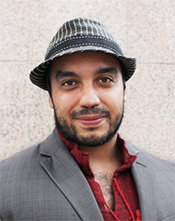 |
Leonardo Figueroa Helland works at the intersection of diverse critical paradigms to study how indigenous knowledges combine with various transformative approaches to address environmental challenges, climate crises and social injustices. His research triangulates political ecology, global studies, complex ecologism, world-systems ecology, ecofeminism, and intersectionality with indigenous and decolonial studies to articulate systemic alternatives that embody social, environmental, climate, and global justice. His writings address themes like global environmental politics and policy, indigeneity and decolonization, coloniality and ecological imperialism, gendered economies and socioecological reproduction, posthumanism and biocultural diversity, agroecology and sustainable food systems, social movements and prefigurative politics, energy geopolitics and energy transitions, and global migrations. Read more >> |
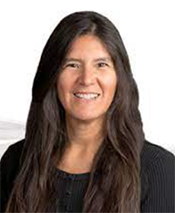 |
Deborah McGregor is Anishinaabe from Whitefish River First Nation. Professor McGregor joined York University's Osgoode Hall law faculty in 2015 as a cross-appointee with the Faculty of Environmental Studies & Urban Change. Professor McGregor's research has focused on Indigenous knowledge systems and their various applications in diverse contexts including water and environmental governance, environmental justice, forest policy and management, and sustainable development. Her research has been published in a variety of national and international journals and she has delivered numerous public and academic presentations relating to Indigenous knowledge systems, governance and sustainability. She co-edited Indigenous Peoples and Autonomy: Insights for a Global Age with Mario Blaser, Ravi De Costa and William Coleman (2010). She is co-editor (with Alan Corbiere, Mary Ann Corbiere and Crystal Migwans) of the Anishinaabewin conference proceedings series. Read more >> |
 |
Jason W. Moore is an environmental historian and historical geographer at Binghamton University, where he is professor of sociology. He is author or editor, most recently, of Capitalism in the Web of Life (Verso, 2015), Capitalocene o Antropocene? (Ombre Corte, 2017), Anthropocene or Capitalocene? Nature, History, and the Crisis of Capitalism (PM Press, 2016), and, with Raj Patel, A History of the World in Seven Cheap Things (University of California Press, 2017). His books and essays on environmental history, capitalism, and social theory have been widely recognized, including the Alice Hamilton Prize of the American Society for Environmental History (2003), the Distinguished Scholarship Award of the Section on the Political Economy of the World-System (American Sociological Association, 2002 for articles, and 2015 for Web of Life), and the Byres and Bernstein Prize in Agrarian Change (2011). Read more >> |
 |
Bhumika Muchhala is a political economist, activist, and educator on international financial architecture, feminist economics, decolonial political economy and global economic justice with over 20 years of experience in global justice organizations. This includes her work at Third World Network where she has been engaged in advocacy and research on UN processes such as the Sustainable Development Goals and Financing for Development, as well as on the policies of the Bretton Woods Institutions. Her works on a feminist economic justice and a feminist and decolonial green new deal are key and timely interventions in contemporary global debates, such as in relation to the Feminist Economic Justice for People & Planet Action-Nexus. She is currently working on her PhD in political economy of global inequalities and decolonial and feminist theory at The New School in New York and consults with various organizations on advancing economic justice and rights. |
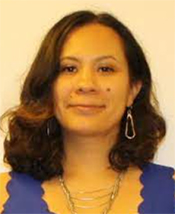 |
Abigail Perez Aguilera is an assistant teaching professor in Women and Gender Studies at Drew University. She is affiliated with the Tishman Environment and Design Center at The New School, where she has also taught in the Global Studies and Environmental Policy and Sustainability Management programs. Her most recent work is a co-authored piece titled "Decolonize: Planetary Crisis, Biocultural Diversity, Indigenous Resurgence, and Land Rematriation." (2022) Other publications by Abigail are: The Tangibility of Maize: Indigenous Literature, Bioart, and Violence in Mexico (2016) and Mining and Indigenous Cosmopolitics: The Wirikuta Case (2016) Her work and teaching ranges from environmental humanities, ecofeminism, anti-colonial practices and movements, Indigenous and global studies, feminist anti-colonial theory and theories of the body and territory. She is part of the Latin American Observatory of the Humanities for the Environment observatories (HfE). |
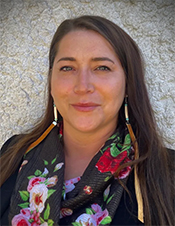 |
Rebecca Sinclair (Merasty) is a nehiyaw-iskwew, wife and mother of three, she is originally from Barren Lands First Nation (Treaty 5) and a member of Little Saskatchewan First Nation (Treaty 2). She moved to Winnipeg, a guest on Treaty One territory, to pursue a Bachelor's degree in Environmental and Native Studies from the University of Manitoba. Rebecca holds multiple positions in land defence, cultural revitalization, research, and acting board member of Akiing Onji Foundation (From the Land) and Waterways. Actively reclaiming her native language, Rebecca pursues higher learning that comes from the land and through learning alongside knowledge keepers and Elders. Her childhood spent on the land in northern Manitoba has shaped her understanding and guided her efforts to protect and preserve the great gifts of our sacred Earth. Rebecca started with ICA in 2020 providing research support to the Decolonizing Climate Policy phase one report. She moved into a full time role with ICA in 2021 in research and policy supporting the creation and implementation of Phase 2 of the Decolonizing Climate Policy project. Currently she sits as Director of Education and Programming. Read more >> |
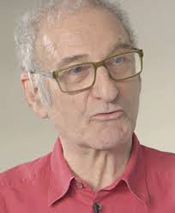 |
Leslie Sklair is Professor Emeritus in Sociology at the London School of Economics and Political Science. He received his PhD from LSE, and his thesis, Sociology of Progress, was published by Routledge in 1970 and was then translated into German. In 1973 he published Organized Knowledge: Sociological View of Science and Technology (which was translated into Spanish). In the 1980s he carried out field research on the developmental impacts of foreign investment in Ireland, Egypt and (more intensively) China and Mexico. He published Assembling for Development: the Maquila Industry in Mexico and the United States in 1989, with a second updated edition in 1993. These works provided the material basis for Sociology of the Global System (published 1991, second updated edition in 1995, translated into Portuguese, Spanish, Japanese, Persian and Korean). Read more >> |
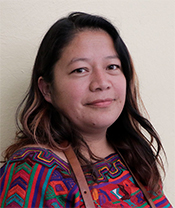 |
Gladys Tzul Tzul is a Maya K'iche' activist, public intellectual, sociologist, and visual artist who was one of the first to study indigenous communal politics and gender relationships in Guatemala. She earned a master's degree from the Alberto Hurtado University in Chile and a PhD in sociology from Benemerita Universidad Autonoma de Puebla in Mexico. Her scholarly work focuses on the relationships of indigenous women within their communities and with larger political structures, such as federal governments. In many of her articles, Tzul Tzul describes how indigenous women resist domination and exploitation through communal democracy in the Andes and Mesoamerica. Indigenous land ownership is also one of her key beliefs. One of Tzul Tzul's case studies is the Ixcan highland village of Santa Maria Tzeja, an indigenous community that was destroyed in 1982 as part of the ethnic cleansing of the Maya during the Guatemalan Civil War. As rebuilding efforts began in the 1990s, women in the village linked alcohol to increased violence and began to organize efforts to prohibit the sale of alcohol. Tzul Tzul describes the successful regulation of alcohol starting in 1994 and the accompanying decrease in domestic violence as a success of the "communal process of historical [and indigenous] self-regulation," which could represent the intersectional concerns of indigenous women in a way that federal governance could not. Read more >> |
 |
Jesus Juan Vazquez Negron is a Puerto Rican organizer, advocate, popular educator and activist that works in the intersections of environmental justice, agroecology, food sovereignty and climate justice at the national and international level. He has been working collectively for the past 12 years with rural, urban and coastal communities organizing mutual support efforts, political education workshops, dialogues, capacity trainings and just recovery initiatives with family farms and communities where people work and live. He is the National Coordinator of Organización Boricua of Ecological Agriculture of Puerto Rico, a 32 year old national grassroots organization composed by farmers, peasants, farm workers, and food sovereignty activists that promote and practice agroecology as a tool to achieve food sovereignty and social justice on the archipelago. He works and collaborates internationally in CLOC, LVC, PAP, USFSA & CJA. Read more >> |
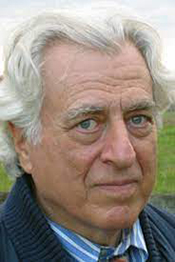 |
Victor Wallis is an author, teacher and activist with a PhD in political science from Columbia University, 1970. He is a professor in the Liberal Arts Department at the Berklee College of Music and the author of Red-Green Revolution: The Politics and Technology of Ecosocialism (Political Animal Press, 2018), Democracy Denied: Five Lectures on U.S. Politics (Africa World Press, 2019), and Socialist Practice Histories and Theories (Palgrave Macmillan, 2020) along with many more articles on topics including Marxism, socialism, globalization, technology, ecology, capitalism, and so on. Read more >> |
